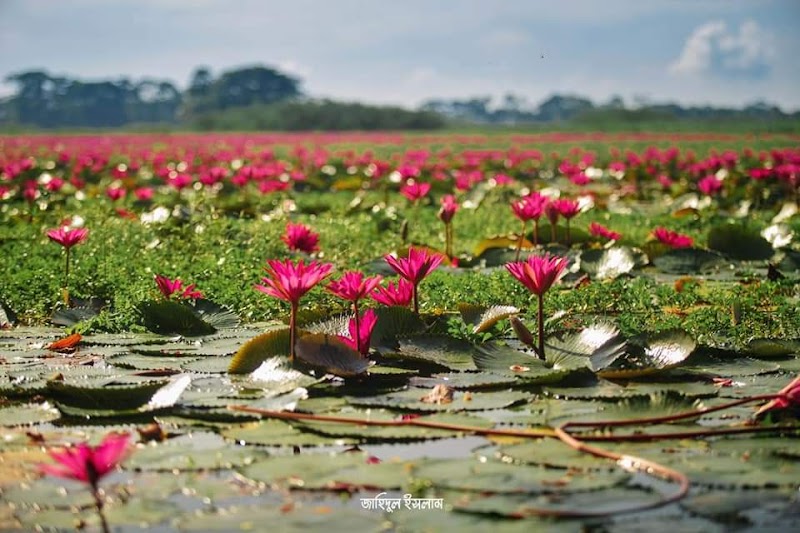
Ekushey Book Fair: Dhaka’s Annual Celebration of Words and Ideas
Ekushey Book Fair in Dhaka offers a vibrant celebration of Bengali language, literature, and culture, drawing hundreds of thousands to the heart of the city each February. Explore rich book collections, lively discussions, and performances while gaining practical tips to navigate this bustling urban event.
Start Early to Beat the Crowds
Arriving in the morning allows you to browse comfortably before the peak afternoon crowd piles in.
Wear Comfortable Footwear
Paved pathways cover the fairground, but long hours on your feet require durable, comfortable shoes.
Stay Hydrated
Bangladesh’s February weather can warm up quickly, especially in a crowd; carry water with you to stay refreshed.
Carry a Sturdy Tote or Backpack
Books can accumulate fast—bring a dependable bag with enough room and support for your finds.
Ekushey Book Fair: Dhaka’s Annual Celebration of Words and Ideas
Each February, Dhaka transforms as the Ekushey Book Fair reawakens the city’s streets and hearts. This isn’t just a gathering of publishers and readers — it’s a vibrant pulse of culture, reflecting the city’s steadfast love for Bengali language and literature. Spanning the expansive grounds of Bangla Academy on the banks of the Buriganga River, the fair draws hundreds of thousands who come to browse thousands of book titles, attend panel discussions, and explore art and music performances.
The fair stretches across several weeks, timed to honor International Mother Language Day on February 21. Walking through its lanes, you’ll face a spirited crowd driven by the profound respect for language and history. Publishers—ranging from established houses to small independent presses—line up their book stalls with everything from classic literature to contemporary voices, academic works to children’s books, all in Bengali and translated editions.
The terrain is urban and straightforward, but navigating the crowds requires patience and planning. Paths between stalls wind tightly, with visitors weaving through layers of eager readers and excited first-time attendees. Expect between 200,000 and 300,000 visitors daily at peak times, especially on weekends, which confirms the fair’s magnetic draw.
Practical preparation includes wearing comfortable footwear; concrete and paved walkways cover the grounds. Carry water; Dhaka’s February weather can range from mild mornings to warm afternoons, and hydration is key amid the throng. Timing your visit early in the day eases the pressure of crowds and offers a chance to attend intimate discussions and book signings. An umbrella or lightweight raincoat can come in handy if unexpected showers visit.
The river nearby seems to whisper encouragement—a steady companion hinting at Dhaka’s eternal flow of culture and change. The breeze carries pages fluttering, sounds of spirited debate, and the occasional street vendor’s calls, blending to create an atmosphere that is as alive as it is educational.
For visitors eager to engage beyond browsing, the fair hosts seminars on literary criticism, poetry recitals, and children’s storytelling competitions—offering a diverse and rich cultural experience that stands fiercely as a pillar of Bengali heritage.
Before you dive in, a practical note: bring a tote or backpack for your book haul, and budget time to step back and absorb the sheer scope of poetry readings, photo exhibits, and historical retrospectives honoring the martyrs of the language movement.
Ekushey Book Fair pulses with the fierce spirit of a people who cherish their language as a core of identity. It’s a lively challenge that demands respect and participation—a communal celebration that is both a cultural pilgrimage and an outright festival of ideas.
Nearby Trips
All Adventures
Boat Charters
Water Activities
Adventures near Dhaka, Dhaka Division
Discover the unique and memorable adventures that make Dhaka, Dhaka Division special.
Frequently Asked Questions
What is the historical significance of the Ekushey Book Fair?
The fair commemorates the Bengali Language Movement of 1952, a pivotal moment in Bangladesh’s history when demonstrators sacrificed their lives for the recognition of Bengali as an official language.
Are there any special events or performances during the fair?
Yes, the fair hosts poetry recitals, cultural programs, seminar panels, children’s contests, and book launches that reflect the diversity of Bangladeshi literary and artistic culture.
How large is the Ekushey Book Fair, and what should I expect?
The fair spans several acres at Bangla Academy and draws up to 300,000 visitors daily at peak times, featuring hundreds of stalls and various event spaces.
Is the fair accessible to people with limited mobility?
The fairground is primarily on flat, paved surfaces, but heavy crowds can make mobility challenging. Planning visits during weekdays might offer a less congested experience.
What local wildlife might I notice around the fair area?
While the urban setting limits visible wildlife, birds such as kites and crows are common near the Buriganga River, and occasional riverbank flora brings some green life.
Where are some lesser-known features of the fair worth exploring?
Explore the art galleries inside Bangla Academy and side exhibitions focused on historical photos and language movement artifacts often missed by casual visitors.
Recommended Gear
Comfortable Walking Shoes
Supports hours of walking on paved surfaces with a crowd.
Reusable Water Bottle
Keeps you hydrated during long visits amid sometimes warm, humid conditions.
Tote or Backpack
To carry purchases securely and comfortably.
Lightweight Umbrella or Raincoat
February can have unexpected light showers; best to be prepared.
Local Insights
Hidden Gems
- "Bangla Academy Art Gallery featuring local artists"
- "Quiet corners with historical displays on the Language Movement"
- "Small café spaces tucked near stall clusters for breaks"
Wildlife
- "Common urban birds—the black kite soaring overhead"
- "Migratory water birds along the Buriganga River edges"
History
"Ekushey Book Fair is more than a market; it honors the Language Movement martyrs who fought to preserve Bengali identity in 1952, a foundational chapter for Bangladesh’s independence."
